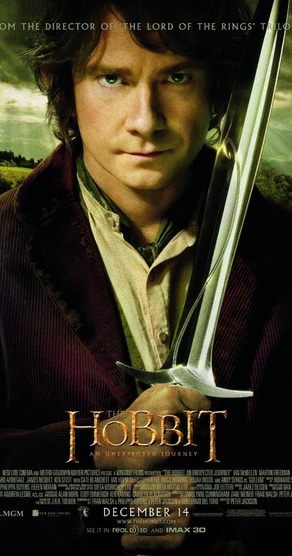 by Connie Jasperson When I read a book, I connect to the sense of wonder that each event or plot twist in a story evokes for the protagonists. I am extremely partial to those books in which the protagonist faces his/her own demons and finds a hero within themselves, a person who faces the unknown and finds the courage to do what he/she believes is morally right. This is a literary theme, and is called the heroic journey. Consider J.R.R. Tolkien's LOTR series. Personal growth and the many forms heroism can take are central themes of his stories, and while there are many side-quests taking the different characters away from the physical journey of the One Ring, Tolkien never strayed from the concept of the hero's journey. What is the "hero's journey"? The concept of the heroic journey was first introduced by the American mythologist, writer, and lecturer, Joseph Campbell in The Hero with a Thousand Faces (published in 1949). In this ground-breaking work, he discusses the monomyth or the hero's journey. He describes how this motif is the common template of a broad category of tales that involve
In my own work, personal growth and the hero's journey are often the central themes. This is because those are the stories that intrigued me most as a young reader, and they intrigue me now as an adult. These concepts are important to me on a personal level, and so they find their way into my writing. Ask yourself what is important to you? When you look for a book, what catches your interest? I am not talking genre here, I am speaking of the deeper story. When you look at it from a distance, what do all the stories you love best have in common? Political thrillers: Set against the backdrop of a political power struggle. Political corruption, terrorism, and warfare are common themes. Romance Novel: Two people as they develop romantic love for each other and work to build a relationship. Both the conflict and the climax of the novel are directly related to that core theme of developing a romantic relationship, although the novel can also contain subplots that do not specifically relate to the main characters' romantic love. Literary fiction focuses on the protagonist of the narrative, creating introspective, in-depth character studies of interesting, complex and developed characters. Action and setting are not the points here, although they must also be carefully developed in such a way they frame the character, and provide a visual perspective. Science Fiction: realistic speculation about possible future events, based solidly on adequate knowledge of the real world, past and present, and on a thorough understanding of the nature and significance of the scientific method. Science and technology are a dominant theme but based on current reality. Characters are still subject to sub-themes such as morality and love, but setting and science are the main themes. Fantasy: Often set in an alternate, medieval, or ancient world, common themes are good vs. evil, the hero’s journey, coming of age, morality, romantic love. Can also be set in urban settings with paranormal tropes. On the surface, these types of books look widely different, but all have one thing in common--they have protagonists and side characters. These people will all have to deal with and react to the underlying theme of the book. Morality, love, coming of age--these ideas can be found in nearly every book on my shelves or on my Kindle. In my mind, the genre and the setting in which these characters react to the wider concepts are just a backdrop. The world they are set in is the picture-frame, a backdrop against which the themes of the story play out, and characters are shaped by a force beyond their control--the author. Keeping in mind the underlying theme of your story while you are laying down the first draft is important. If your inspiration seems to faint somewhere in the middle, it may be that you have lost track of what you originally imagined your story was about and your characters no longer know what they are fighting for. Was it love? Was it destiny? Was it the death of hope? When we are constantly prodded to make our work focus on action instead of introspection, it becomes easy to wander way off track. Ask yourself if the action has been inserted for the sake of the shock value, or if this scene is necessary to force change and growth on the protagonist. How will her fundamental ethics and ideals be challenged by this event? If there is no personal cost, there is no need for that scene. Writing these blind alleys is not a waste of time. You never know when you will need those ideas, so don’t throw them away—always keep the things you cut in a separate file. Remember, just because that idea doesn't work for this book, doesn't mean it won't work in another book. I label that file "outtakes," and believe me, it has come in handy when I need an idea to jump-start a new story. Sometimes we are so busy setting traps and roadblocks for our protagonist and his nemesis that the action takes over and becomes the theme. The action should be there to force the character to grow, not simply for the sake of action. If you absolutely must have that action, find a way for it to change or otherwise affect the characters involved in it. When we are deep in the creative process, it's easy to forget that characters must evolve. Remember, there was a fundamental theme in your mind when you first imagined you had a story to write, and once you identify that core concept, you may find you are no longer stuck.
0 Comments
Leave a Reply. |
Archives
January 2023
Categories |
 RSS Feed
RSS Feed